Dr. Bridget Cooper is a cage rattler, change strategist, consciousness raiser, speaker, coach, and best-selling author of four books on communication, conflict, change, and empowerment.
We recently asked for Dr. Cooper’s insight on the importance of learning soft skills to become a better leader in today’s workplace. Here’s what she had to say:
In your mind, what are the qualities of a great leader?
A great leader is focused on being the best person they can possibly be so they can serve as a role model, guide and inspiration to others. The most effective leaders I’ve worked with are authentic, compassionate, collaborative, courageous and not afraid to be vulnerable.
What are soft skills? Why are soft skills so important to a person’s career?
Soft skills are what make us human. You can design a robot to build or operate something but you need a human to create a vision, a mission and foster passion and purpose. Soft skills are things like communication, conflict resolution, and any level of emotional regulation. Soft skills either inspire greatness or destroy teams and organizations.
What soft skills do you believe are essential for someone to find success in their careers?
Emotional awareness is at the core of all soft skill development. If you don’t know who you are you can’t fix anything. Emotional agility, a construct I developed for my third book, Stuck U., is comprised of three essential skills: insight, flexibility and distance-ability (the ability to carve emotional distance and perspective in “hot” situations). Successful and abundant executives have mastery of Emotional Agility.
How can students and those either starting their careers or attempting to start new careers brush up on their soft skills?
Buy my books, of course! Aside from that, hire a coach to provide another perspective on where your blind spots for skill development may be. Listen below the surface when people are giving you feedback or responding to you. Personal growth and soft skills development is a lifelong process so don’t be afraid to ask for help!
In what areas do you find your clients most need to grow in regards to soft skills and leadership?
The component of Emotional Agility that gives my clients the greatest challenge is distance-ability. We submerge ourselves in conflicts and struggles so deeply that we cannot see our way to the clearest resolution. So many of us unnecessarily complicate things that could be simply solved if we could get some perspective. That’s how a coach can help you to pull you out of that head space until you can learn how to rise out on your own. It takes a LOT of practice and most of my work takes place in organizations that are abundant with stress and drama because of this skill deficit.
What are some of your favorite resources (blogs, books, organizations, etc.) that can help aspiring leaders continue to grow their leadership skills?
The American Psychological Association sponsors local chapters of their Psychologically Healthy Workplace programs that assist leaders and organizations in creating healthy work systems, including effective leadership. Any good leader is a on a lifetime path of self-growth so any book on how you can tap into deeper self-awareness, confidence, patience and communication.
How has workplace leadership evolved since you started your career? What do those heading into the workplace today need to know about evolving their skillsets into the future?
I’ve found that the line between professional and personal is blurring. Companies are realizing the effect on the bottom line of stress-related illnesses of their employees. Workplace violence, bullying and other forms of harassment dominate some human resource departments, preventing companies from focusing on their operations and advancement. Strong companies realize that consciously and intentionally supporting the development of their human capital – their employee base – pays off in spades.
What advice do you find yourself repeating to clients over and over in regards to being better leaders?
I start off every professional engagement teaching my clients my technique for getting and staying focused, calm and present so that they can give their best selves to every meeting, presentation, and exchange. It’s called “Stop, Center, Move” and it reminds people to be present in the moment they are in, set an intention before they transition to any new space or conversation, and the power of the pause in owning their own personal power.
Too often, leaders – and people, in general – forget how powerful they truly are and they squander their potential by getting carried away by far too many distractions that tear them from their higher purpose.
Looking to invest in your professional development? View open courses at Central Connecticut State University.
